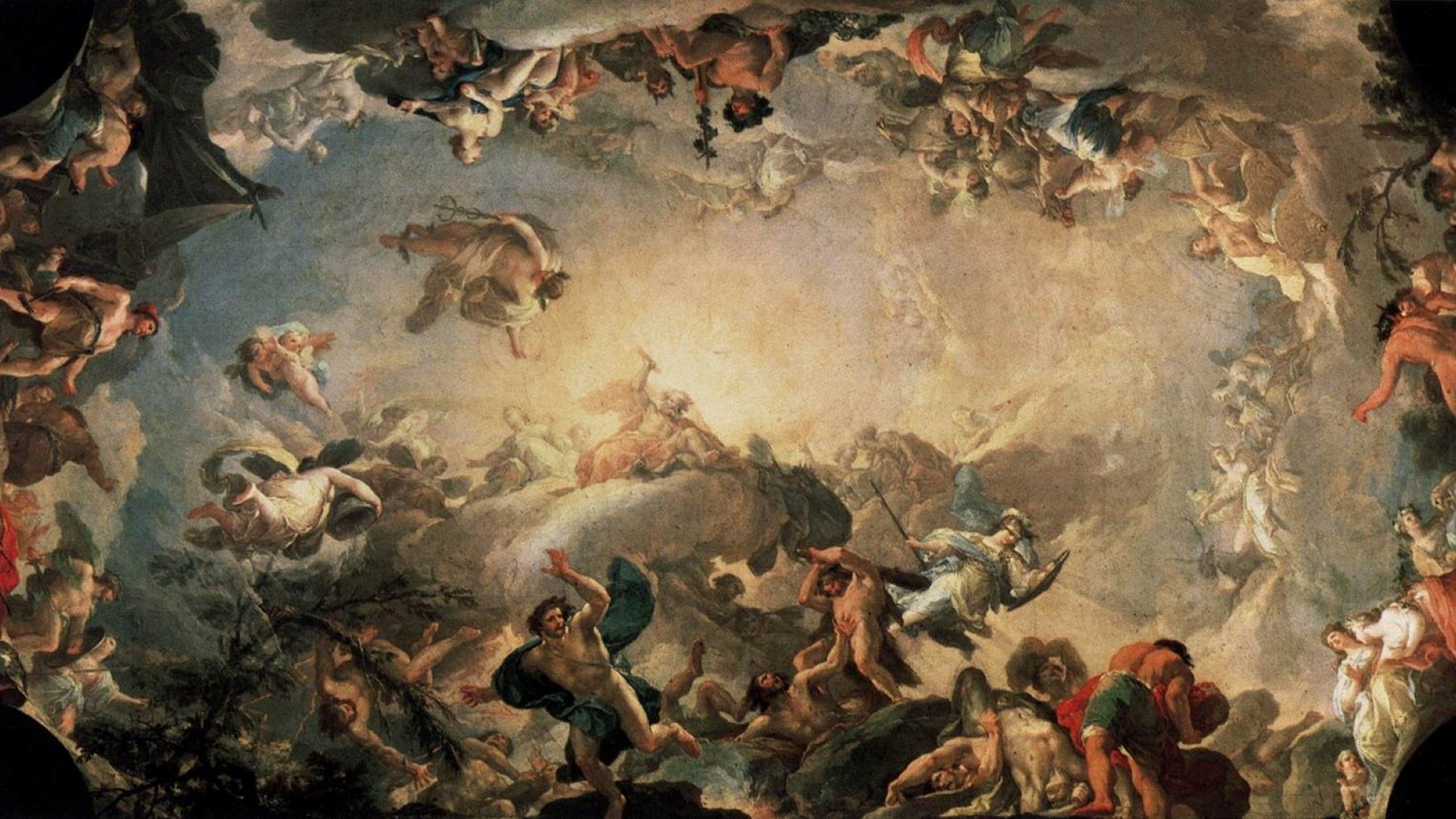
Cycnus
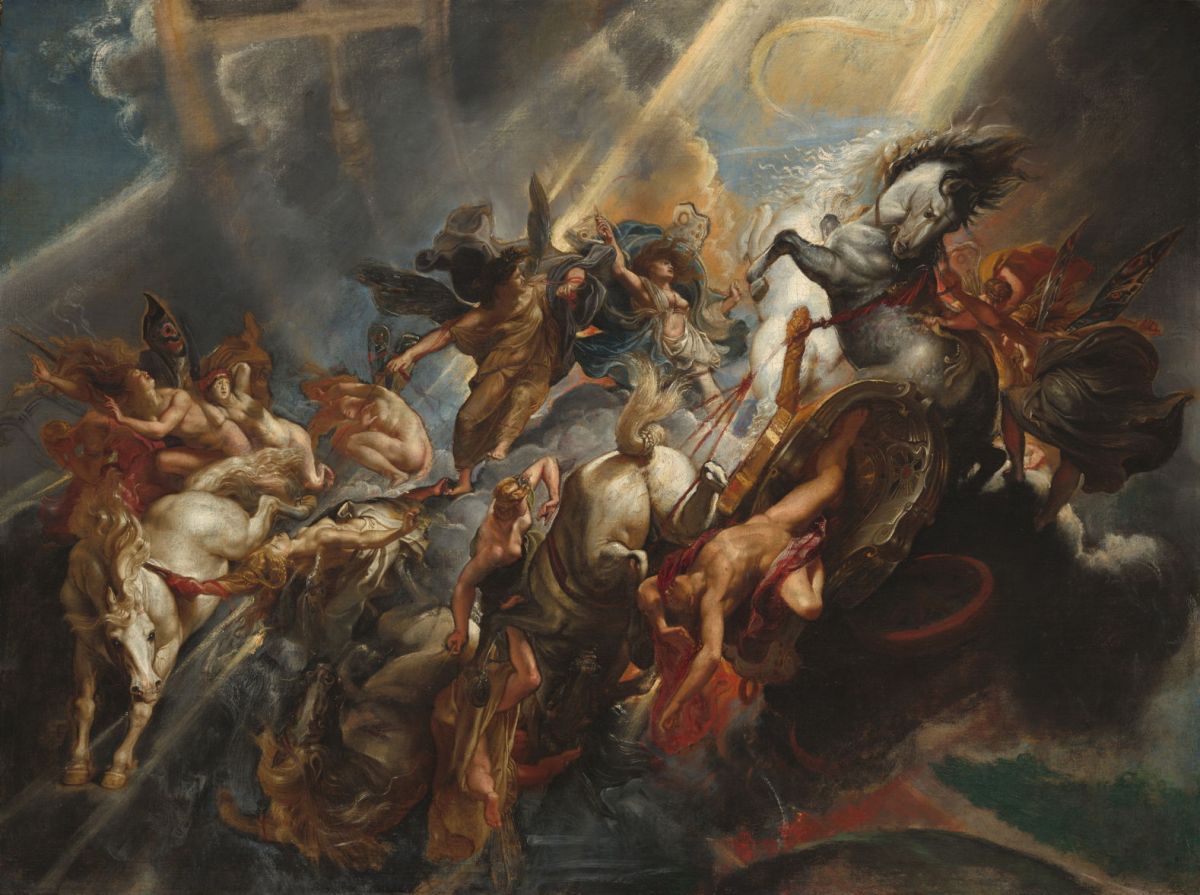
In Greek mythology, multiple characters were known as Cycnus (Ancient Greek: Κύκνος) or Cygnus. The literal meaning of the name is "swan", and accordingly most of them ended up being transformed into swans.
Cycnus, son of Ares.
Cycnus, king of Kolonai (son of Poseidon and a defender of Troy).
Cycnus, friend of Phaethon.
Cycnus, son of Apollo.
Cycnus, one of the suitors of Penelope.
Cycnus, son of King Eredion of Achaea, who, in one version, seduced Leda and made her mother of triplets: the Dioscuri and Helen. In all other sources, she had these children by Zeus who approached her in the shape of a swan (kyknos).
Cycnus, a blunder for Guneus in the manuscript of Hyginus' Fab. 97 (list of the Achaean leaders against Troy).
Cycnus, king of Kolonai (son of Poseidon and a defender of Troy)
Cycnus was a name given to a defender of Troy during the war with the Achaean forces of Agamemnon. Cycnus was famous for being a demi-god, for he was a son of Poseidon, and also famous for being invulnerable to sword or spear, and yet Cycnus would die at the hands of an even more famous demi-god, for Cycnus would be a victim of Achilles during the war.
Cycnus, son of Poseidon
Whilst it was agreed in ancient sources that Cycnus was the son of the Greek sea god Poseidon, there was no agreement about who the mother was; for the mother of Cycnus was variously named as Calyce, Harpale and Scamandrodice.
The mother of Cycnus was not enamoured with giving birth to the son of Poseidon though, for the newborn boy would be exposed upon the sea’s coast. Obviously the boy did not die, for fishermen came upon him and saved him. It was these fishermen who named the boy Cycnus, for it was said that they observed a swan flying down to him.
Some sources though say that Cycnus was named for his pale complexion, white eyes, white lips and fair hair, reminiscent of a swan.
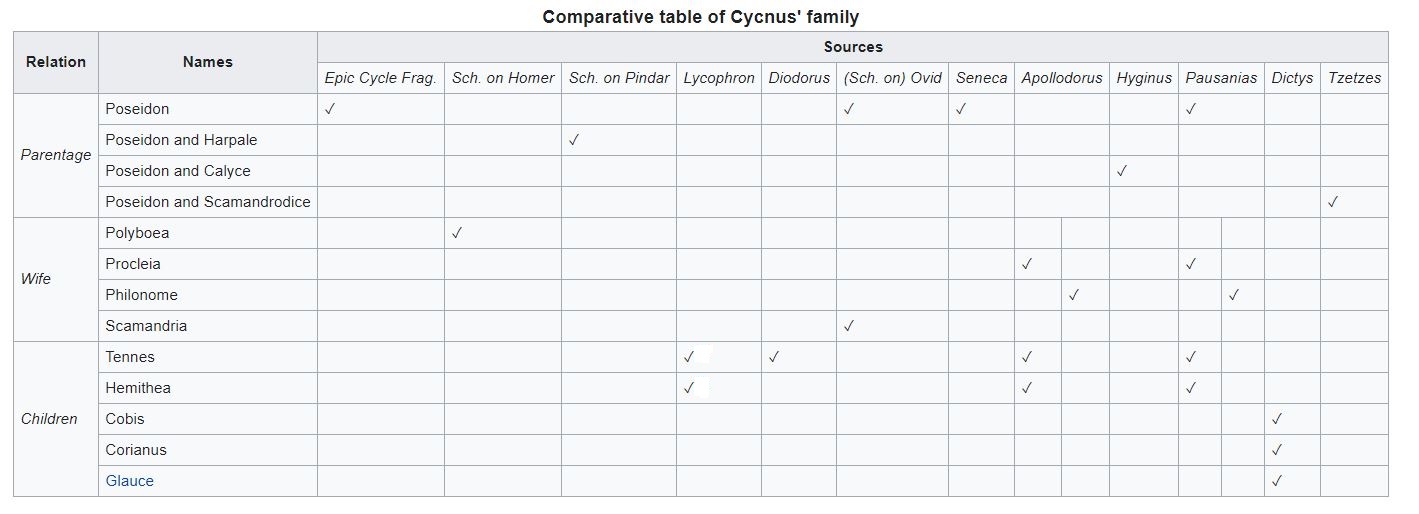
Family trouble for Cycnus
Nothing is said of the childhood of Cycnus but when an adult, Cycnus was named as the king of Colonae, a city of the Troad.
Cycnus would marry Procleia a daughter of King Laomedon of Troy, making Cycnus brother-in-law to Priam. With Procleia, Cycnus would become parent to a son and a daughter, Tennes and Hemithea.
Procleia would die though, and Cycnus would remarry a woman by the name of Philonome. Philonome would be smitten with her step-son Tennes, and would attempt to seduce him. Tennes would reject the advances of Cycnus’ wife, but in retribution for the rejection, Philonome would tell Cycnus that Tennes had attempted to rape her. To make her lie more believable, Philonome produced a witness in the form of a flute-player named Eumolpos (Molpus).
Cycnus would believe his new wife, and in a rage, set Tennes and Hemithea adrift at sea. Grandchildren of Poseidon were unlikely to be harmed by the sea and the children of Cycnus would safely was up on the island of Leucophrys, an island named for its white cliffs; Tennes though would take possession of the island, and subsequently renamed it Tenedos after himself.
Later on Cycnus would discover that Philonome had lied to him, and thus Cycnus had Philonome killed, for his wife was buried alive, and Eumolpos was stoned to death. Then Cycnus, having discovered that his children were alive upon the island of Tenedos sought to reunite with them.
Tennes would not be reconciled with his father though, and when his father tried to land on Tenedos, Tennes cut the anchor rope, thus Cycnus would have to return to Colonae without his son and daughter.
Tennes would then claim that he was not a son of Cycnus, but was instead the son of the Greek god Apollo.
Cycnus was also named as father to three further children, sons, Cobis and Corianus, and daughter, Glauce, although the mother of these children is again not made clear.
Cycnus defender of Troy
Cycnus would gain a reputation as a warrior during the Trojan War, for Cycnus was an ally of King Priam.
Cycnus certainly had an advantage over many who would fight at Troy, for his father, Poseidon, had made Cycnus invulnerable to sword and spear. Thus, when the 1000 ships of the Achaean armada attempted to disembark their troops on the Troad, they were met with a Trojan force led by Hector and Cycnus.
Eventually the Achaeans managed to land some troops on Trojan soil, although the first hero to land, Protesilaus, was quickly killed, just as a prophecy foretold. Some tell of Protesilaus having been killed by Cycnus, although it is more commonly said that Hector performed this deed.
Briefly the Trojans were pushed back, but when a lull in fighting allowed for the funeral of Protesilaus, Cycnus led another attack, an attack in which a thousand Achaean soldiers were said to have died beneath his weapons.
Cycnus and Achilles
Soon the noted heroes of the Achaean army were roused into action, and Achilles mounted his war chariot and charged at the Trojan army, seeking out either Cycnus or Hector.
At this time Achilles was unaware of Cycnus’ invulnerability, and thus when he spied the Trojan defender, Achilles threw his spear at Cycnus. Achilles was certainly surprised when despite hitting where it was aimed, no harm came to Cycnus.
Cycnus would mock Achilles for his inability to harm him, and even went as far as removing his armour. Achilles continued to throw spears at the now unarmoured Cycnus, and yet the Trojan just stood there and laughed as the spears rebounded off of his body.
To prove to himself that he had not suddenly lost his strength and skill, Achilles would unleash a spear at another Trojan defender, Menoetes, and this spear found its mark piercing the armour of Menoetes and killing him; but through all of this, Cycnus continued to mock Achilles.
In a rage, Achilles descended from his chariot and sought to use his sword on Cycnus, but Achilles sword simply blunted on the skin of Cycnus, as the spears had done before so. Now truly enraged, Achilles started to batter Cycnus, and under the weight of blows Cycnus started to back away. As he did so, Cycnus tripped over a large stone falling to the ground, and at once Achilles pounced upon his foe, and kneeling upon Cycnus, Achilles wrapped his helmet strap around the throat of his opponent, strangling Cycnus until he was dead.
Alternatively Cycnus might have died when Achilles threw a millstone at the Trojan, with the stone striking him on neck, killing him.
The transformation of Cycnus
Ovid, in the Metamorphoses, would tell of the transformation of Cycnus, by Poseidon, after his death, Cycnus taking on the very form of the swan after which he was named.
The impact of Cycnus' death
Nestor would subsequently tell the Achaean leaders of how similar Cycnus and Caeneus were; Caeneus being an invulnerable Lapith of the previous generation who had taken part in the Centauromachy.
The fierce fighting caused a change in plan for the Achaean’s and rather than go direct to the walls of Troy, the Achaean’s instead plundered weaker cities in the Troad. Thus it was that Colonae, the city of Cycnus was soon under attack. The people of Colonae though ransomed their city, be presenting the children of Cycnus, Cobis, Corianus and Glauce to the Achaean forces; and subsequently Glauce would become a war-prize of Ajax the Greater.
Cycnus’ son Tennes would also die during the Trojan War, for before the Achaean’s reached Troy, they stopped at Tenedos, and there, Achilles sought to seduce Hemithea. Seeking to protect his sister’s virtue, Tennes fought with Achilles, but the son of Peleus would kill the son of Cycnus.
Cycnus (son of Ares)
In Greek mythology, Cycnus or Cygnus, was a bloodthirsty and cruel man who dwelt either in Pagasae, Thessaly or by the river Echedorus in Macedonia.
Cycnus was the son of Ares by Pelopia or Pyrene. He married Themistonoe, daughter of King Ceyx of Trachis.
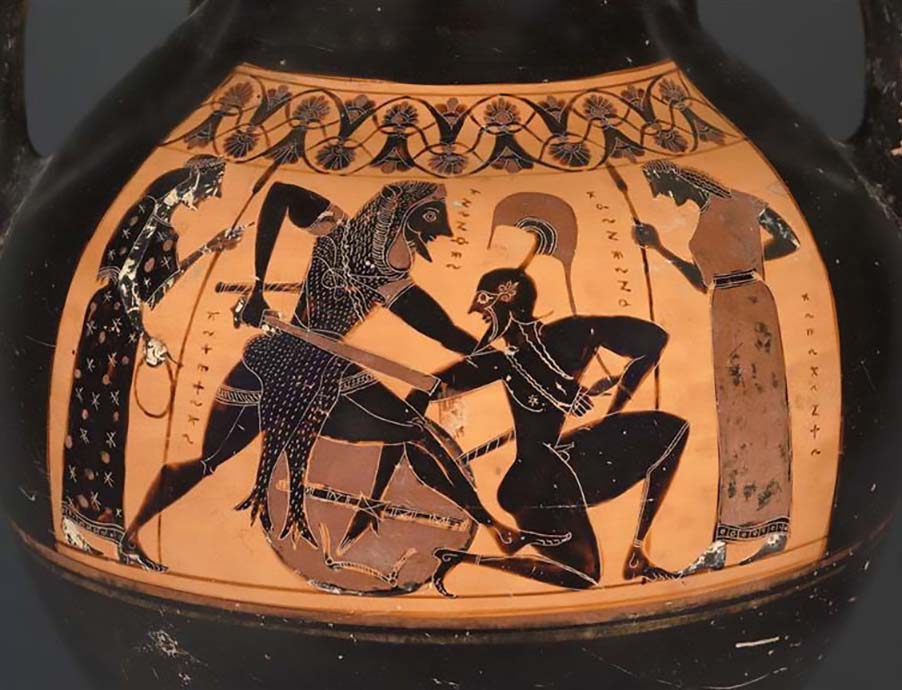
Mythology
Cycnus killed all of his guests until he was slain by Heracles. According to Pausanias, one of the men murdered by him was Lycus of Thrace.
Pseudo-Apollodorus wrote of Cycnus the Thessalian, the son of Pelopia, and Cycnus the Macedonian, the son of Pyrene, as two distinct encounters of Heracles, mentioning them separately. The Thessalian Cycnus, he relates, challenged Heracles to single combat and was killed by him; the same is recounted by Diodorus. The Macedonian Cycnus, according to the Bibliotheca, also challenged Heracles to single combat; Ares attempted to avenge his son's death, but a thunderbolt was hurled by Zeus between the combatants, causing them to part.
In the Shield of Heracles, Heracles and his nephew, Iolaus, are traveling through Thessaly on their way to Trachis when they are encountered by Cycnus and Ares, each pair riding a chariot; it is mentioned that Heracles was directing to the court of King Ceyx.
Apollo, whose Pagasaean sanctuary was next to the place where the characters meet, is said to have stirred Heracles up against Cycnus.
Heracles accepts Cycnus' challenge and as he puts on his armor to prepare for battle, Athena appears before him, and tells Heracles that, should he kill Cycnus in the ensuing battle, he is to not take his armor as spoils, but instead focus his attention on Ares, as he will surely attack Heracles to avenge Cycnus' death.
Heracles and Cycnus then clash in single combat; Cycnus hurls his spear at Heracles' shield, but fails to penetrate it, after which Heracles drives his spear through Cycnus' neck, killing him. Ares is enraged by his son's death and moves to kill Heracles when Athena appears before him, urging him to check his anger and cease fighting. Ares refuses to listen, however, and again charges at Heracles, hurling his spear at his shield; Athena, however, turns his spear aside.
Ares then draws his sword and leaps at Heracles, who, seeing an opening, thrusts his spear into Ares' thigh, causing the god to fall to the ground; Ares' twin sons, Phobos and Deimos, appear to rescue him and take him back to Mount Olympus.
Heracles then strips Cycnus of his armor, after which he and Iolaus continue on their journey to Trachis; Cycnus was buried by his father-in-law Сeyx and people of the neighboring cities, but Apollo, still angry over Cycnus' actions, has the river Anaurus flood the area and wash Cycnus' tomb away.
According to Euripides, Heracles shot Cycnus with his arrows, and this took place in Amphanae near the river Anaurus.
Eustathius of Thessalonica informs that Ares changed Cycnus into a swan rather than let him die by the hand of Heracles.
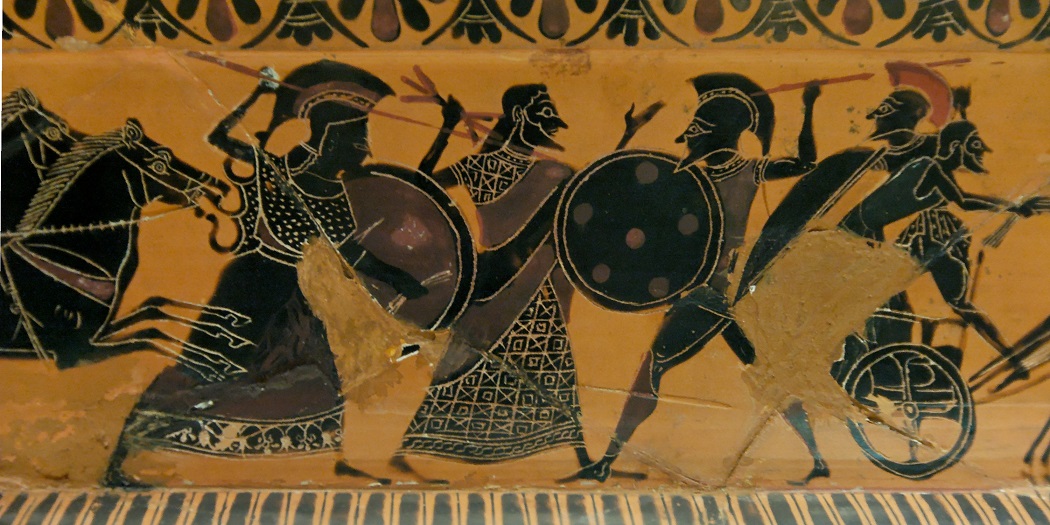
Cycnus of Liguria
In Greek mythology, Cycnus or Cygnus, was a king of Liguria (is a region of north-western Italy; Just for the records: at ancient times there were no Romans, or Italians etc. – these regions were areas belonging to the various Ancient Greek kingdoms).
Cycnus was the son of Sthenelus and a good friend of Phaethon, according to Ovid, he was a distant relative of Phaethon on his mother's side. Servius also mentions that Cycnus had a son named Cupavo.
Mythology
After Phaethon died, he sat by the river Eridanos mourning his death. The gods turned him into a swan to relieve him of his pity. Even then he retained memories of Phaethon's death, and would avoid the sun's heat because of that. According to Virgil, Cycnus lamented Phaethon's death till he grew old, so his gray hair became gray feathers upon his transformation.
Pausanias mentions Cycnus, king of the Ligyes (Ligurians), as a renowned musician who after his death was changed into a swan by Apollo.
Servius also writes of Cycnus as a musician and a friend of Phaethon, and states that he was changed into a swan and later was placed among the stars by Apollo (that is, as the constellation Cygnus). Cycnus's talent of a musician motivates his association with the concept of the swan song suggested in Hyginus's account.
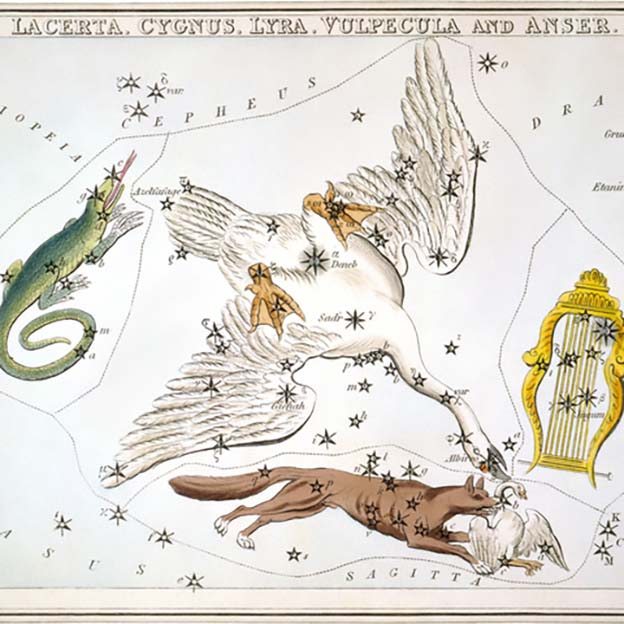
Cycnus of Aetolia
In Greek mythology, Cycnus or Cygnus, was a son of Apollo by Hyrie or Thyrie, daughter of Amphinomus.
Mythology
According to Antoninus Liberalis, Cycnus dwelt in the country between Pleuron and Calydon and dedicated most of his time to hunting. He was good-looking but arrogant and disrespectful towards numerous other youths who became enamoured of him and sought his attention. His attitude eventually made all of those youths desert him; only one of them, Phylius by name, loved him deeply enough to stay by his side nevertheless.
Cycnus was still unmoved by Phylius's devotion and challenged him to three impossible tasks, hoping to get rid of him. The first task was to kill a lion that was threatening the neighborhood without use of any weapons. Phylius consumed a lot of food and wine and then vomited it back up on the spot where the lion would usually show up; the beast ate the products and became intoxicated with wine, whereupon Phylius strangled it with his own clothes.
The second task was to catch two man-eating vultures of enormous size that were posing an equal threat to the neighborhood, again without use of any devices. While Phylius was contemplating a way to fulfill the task, he saw an eagle accidentally drop its prey, a dead hare, to the ground. Phylius then smeared himself with the hare's blood and lay still on the ground, pretending to be dead. When the vultures attacked him, he caught them by the feet and brought them to Cycnus.
Finally, Phylius had to bring a bull to the altar of Zeus with his own bare hands. Not being able to come up with a way to perform this last task, he prayed to Heracles for help. Then he saw two bulls fighting over a heifer and waited till in the course of the fight both fell to the ground and became helpless, which made it possible for him to grab one of the bulls by the legs and drag it to the altar.
At this point, Heracles caused Phylius to no more obey the orders of Cycnus. When Cycnus found that, he felt disgraced and committed suicide by throwing himself into a lake called Conope; his mother Thyrie did the same. Apollo changed them both into swans. The lake became known as the Swan Lake because of that, and when Phylius died, he was buried near it.
Ovid also incorporates the story of Cycnus and Phylius in his Metamorphoses: in his version, Phylius performs the three tasks but refuses to deliver the tamed bull to Cycnus. The latter is scorned and throws himself off a cliff, but transforms into a swan as he is falling and flies away. His mother Hyrie, unaware of the transformation and thinking that he is dead, dissolves away in tears, thus changing into the lake Hyrie.
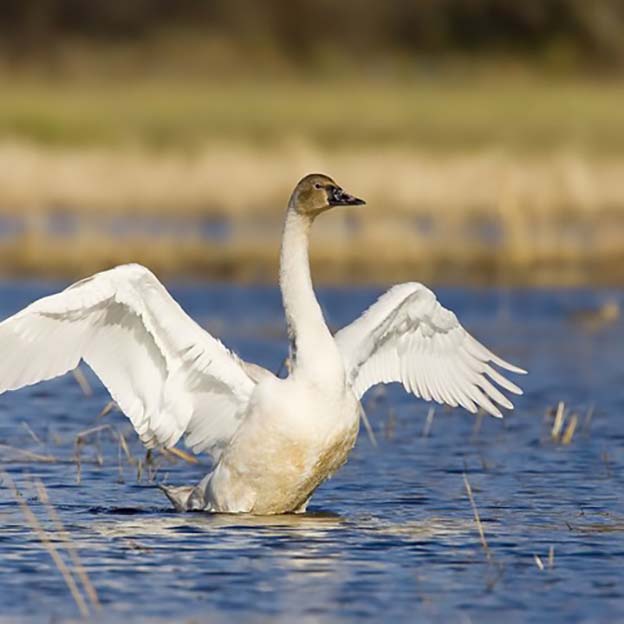
Sources
Pausanias, Description of Greece, 1. 27. 6
Strabo, Geography, 13. 1. 19
Ovid, Metamorphoses, 2, 367 sqq.
Antoninus Liberalis, Metamorphoses, 12
Pseudo-Apollodorus, Bibliotheca, Epitome of Book 4, 7. 27
Tzetzes on Lycophron, 506
Pseudo-Eratosthenes, Catasterismi, 25
Hyginus, Poetical Astronomy, 2. 8
Hesiod, Shield of Heracles 472–479
Pausanias, Graeciae Descriptio 1.27.6
Pseudo-Apollodorus, Bibliotheca 2.7.7. & 2.5.11
Pseudo-Apollodorus, Bibliotheca 2.7.7
Diodorus Siculus, Bibliotheca historica 4.37.4
Pseudo-Apollodorus, Bibliotheca 2.5.11; same version in Hyginus, Fabulae 31
Euripides, Heracles 390
Eustathius on Homer, p. 254
Strabo, Geographica 13.1.19
Hyginus, Fabulae 157
Scholia on Pindar, Olympian Ode 2.147
Tzetzes on Lycophron, 232
Scholia on Theocritus, Idyll 16 & 49
Scholia on Homer, Iliad 1.38
Scholia on Ovid, Ibis 463
Cretensis, Trojan War Chronicle 2.13
Pseudo-Apollodorus, Bibliotheca Epitome of Book 4.3.23–24
Conon, Narrations 28
Tzetzes on Lycophron, 232-233
Pausanias, Graeciae Descriptio 10.14.2–3
Diodorus Siculus, Bibliotheca historica 5.83.4
Quintus Smyrnaeus, Posthomerica 4.529
Dictys Cretensis, Trojan War Chronicle 2.12
Ovid, Metamorphoses 12.64–145
Servius on Aeneid, 10. 189
Ovid, Metamorphoses, 2, 367 sqq.
Virgil, Aeneid, 10. 189 ff
Pausanias, Description of Greece, 1. 30. 3
Hyginus, Fabulae, 154
Antoninus Liberalis, Metamorphoses, 12
Ovid, Metamorphoses, 7. 371 ff
"Wikipedia"
"Greek Legends and Myths"
Our Mobile Application
Check out Our Mobile Application "Ancient Greece Reloaded"


